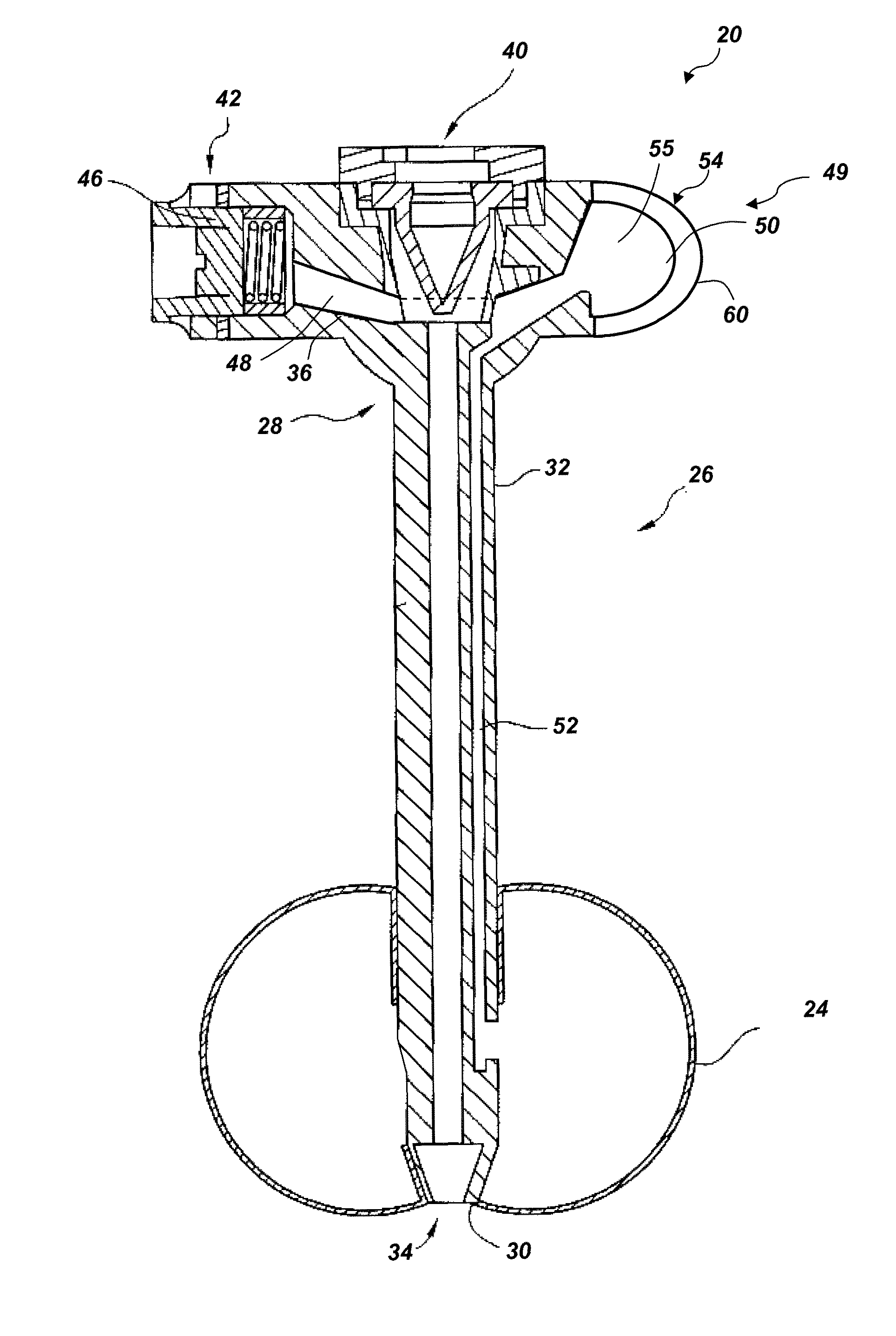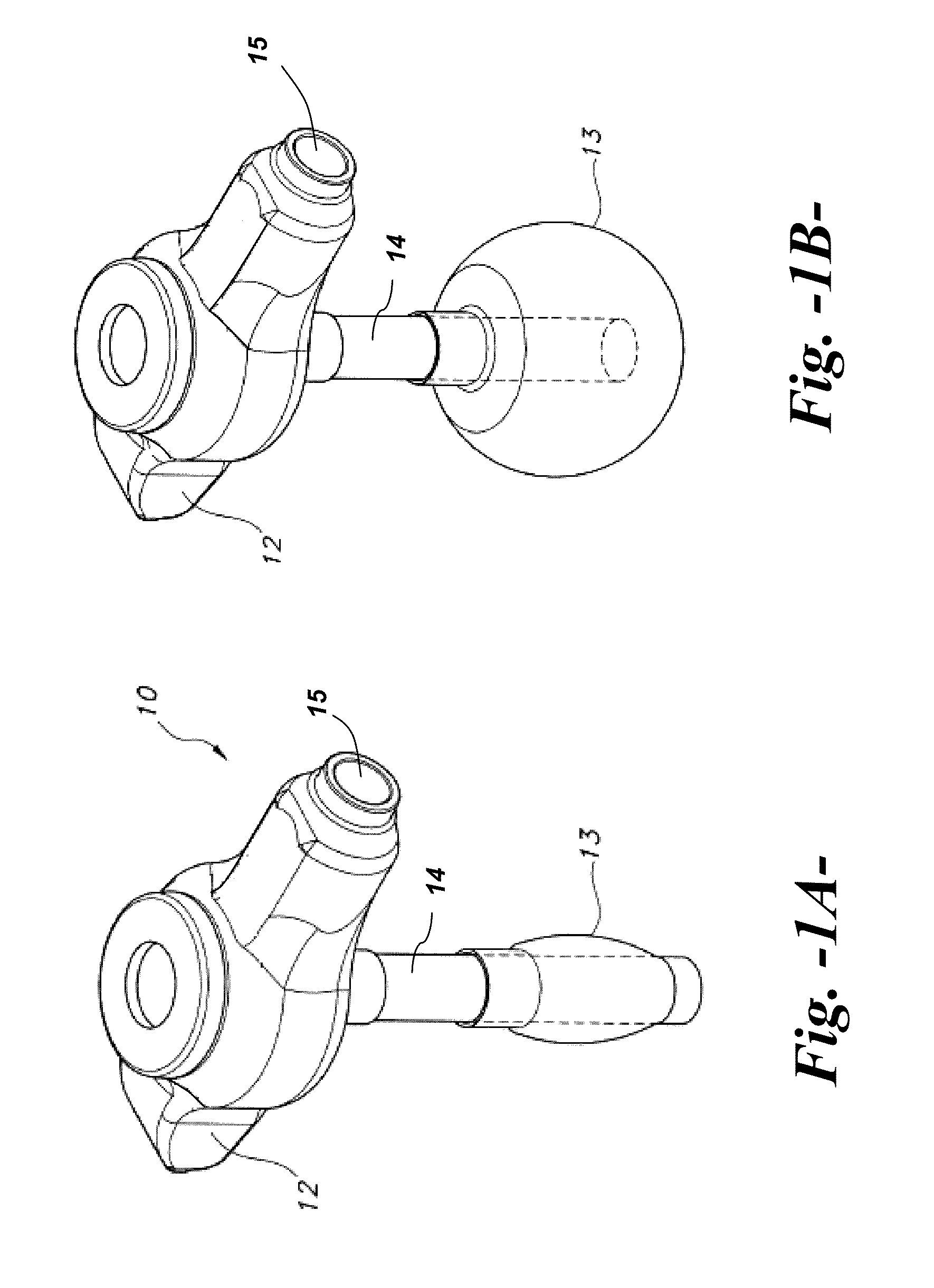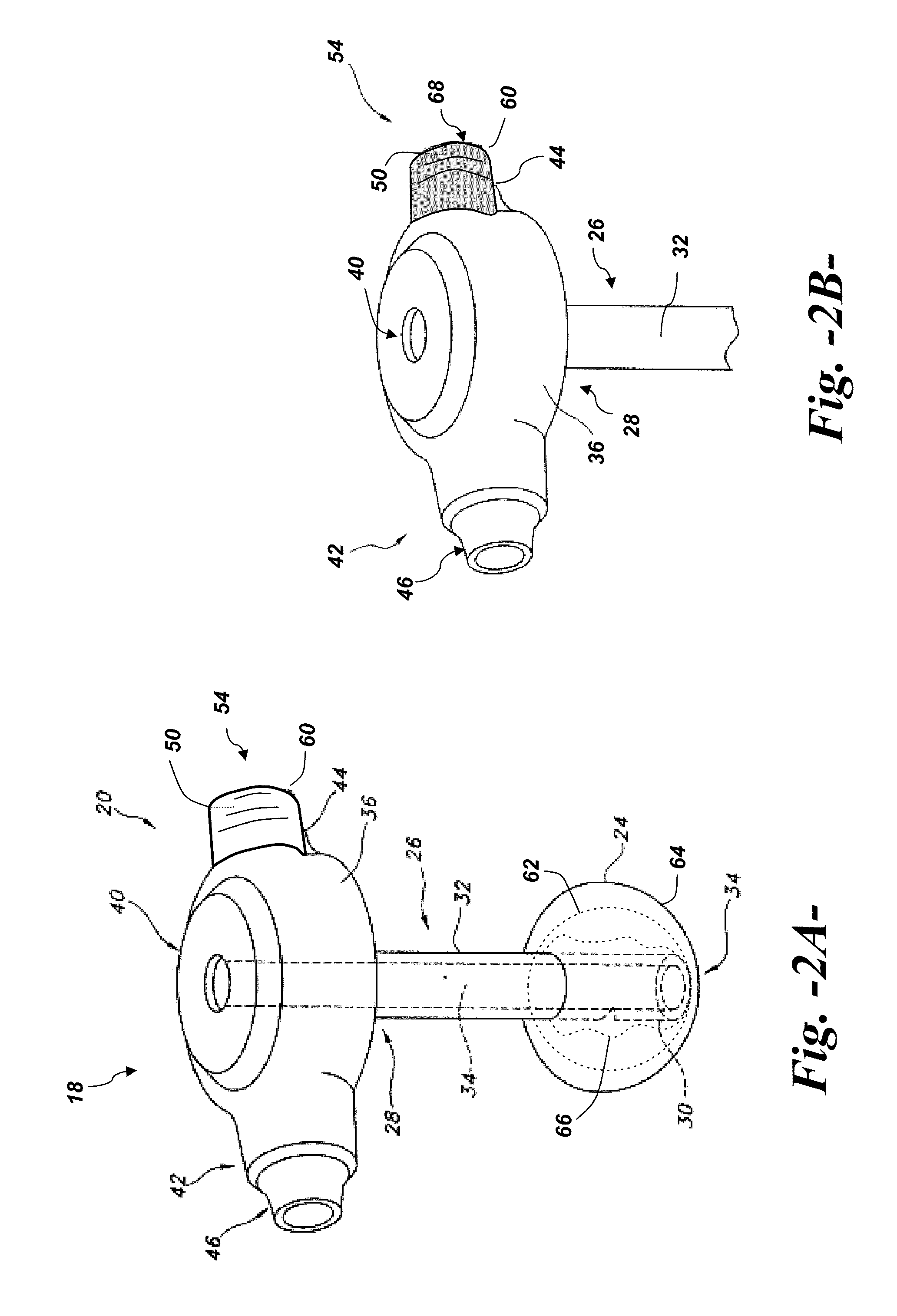Enteral feeding catheter device with an indicator
a technology of a catheter and an indicator, which is applied in the field of balloon catheters, can solve the problems of balloons that may eventually leak and deflate, change the dimensions of balloons, tissue damage, etc., and achieve the effect of increasing inflation pressur
- Summary
- Abstract
- Description
- Claims
- Application Information
AI Technical Summary
Benefits of technology
Problems solved by technology
Method used
Image
Examples
Embodiment Construction
[0034]Reference will now be made in detail to one or more embodiments of the invention, examples of the invention, examples of which are illustrated in the drawings. Each example and embodiment is provided by way of explanation of the invention, and is not meant as a limitation of the invention. For example, features illustrated or described as part of one embodiment may be used with another embodiment to yield still a further embodiment. It is intended that the invention include these and other modifications and variations as coming within the scope and spirit of the invention.
[0035]FIGS. 1A and 1B are views of a conventional PEG tube device 10 having a base 12 and retainer balloon 13 made of conventional “soft” or elastomeric medical grade silicone in an un-stretched state (i.e., un-inflated condition) at the distal end of a catheter shaft 14. In FIG. 1B, the balloon 13 has been stretched by inflation to an inflated operational fill volume. As is well understood by those skilled i...
PUM
 Login to View More
Login to View More Abstract
Description
Claims
Application Information
 Login to View More
Login to View More - R&D
- Intellectual Property
- Life Sciences
- Materials
- Tech Scout
- Unparalleled Data Quality
- Higher Quality Content
- 60% Fewer Hallucinations
Browse by: Latest US Patents, China's latest patents, Technical Efficacy Thesaurus, Application Domain, Technology Topic, Popular Technical Reports.
© 2025 PatSnap. All rights reserved.Legal|Privacy policy|Modern Slavery Act Transparency Statement|Sitemap|About US| Contact US: help@patsnap.com



